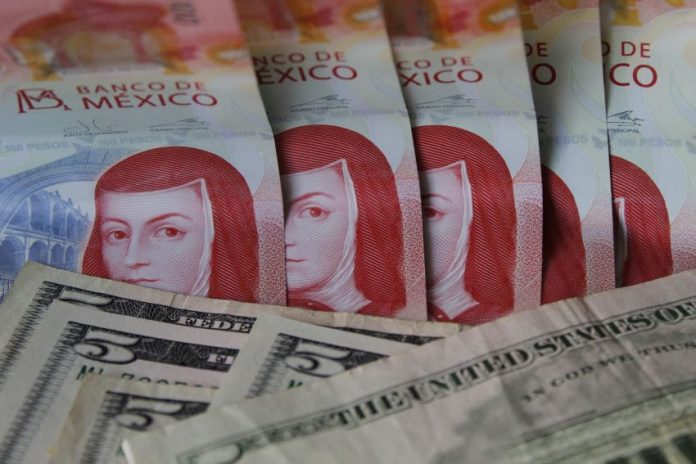The peso strengthened for a third straight day against the U.S. dollar, recovering from Trump’s tariff threats as traders reacted to a weak U.S. jobs report.
Mexico’s currency was trading around 20.20 to the dollar just before noon on Thursday, a 0.49% increase according to the foreign exchange website FX Street. Dollars were being sold for 20.74 pesos at banks in Mexico, the newspaper El Financiero reported.
Although traders ignored Wednesday’s hawkish comments from U.S. Federal Reserve Chair Jerome Powell, comments about inflation by the deputy governor of Mexico’s central bank (Banxico) might have slowed the peso’s rebound.
A day after Powell said the U.S. economy’s strength will allow the Fed to “proceed cautiously with interest rate cuts,” the U.S. Department of Labor reported a slight deterioration of the jobs market.
Along with the disappointing jobs report, data showing the U.S. trade deficit narrowed in October sent the dollar tumbling in global markets, according to FX Street.
Comments from Banxico Deputy Governor Irene Espinosa may have slowed the peso’s momentum. Espinosa said that if Mexico’s Congress approves a 12% increase to the minimum wage, Mexico would experience upward pressure on inflation in 2025.

Despite Powell’s hawkish stance, the financial services company CME Group suggests investors see a 70% chance that the Fed will cut interest rates by 25 basis points at its Dec. 17-18 meeting.
At the same, a Citi Mexico survey projects that Banxico will follow suit and cut rates by 25 basis points on Dec. 19.
The peso had depreciated to 20.71 to the dollar on Nov. 26, its weakest level since March 2022, after U.S. President-elect Donald Trump threatened to impose tariffs on Mexican imports.
Fears of a trade war were eased after Mexican President Claudia Sheinbaum spoke to Trump the next day, prompting the peso’s gradual recovery, according to the website Trading Economics.
Despite the bounce-back, the peso is about 20% weaker year-on-year, hamstrung by concerns over the Mexican government’s spending and its budget deficit.
With reports from El Financiero, Reforma and FX Street
